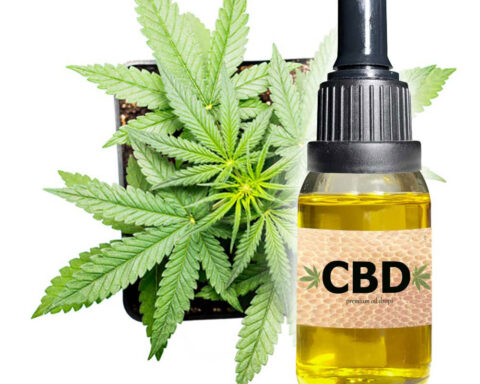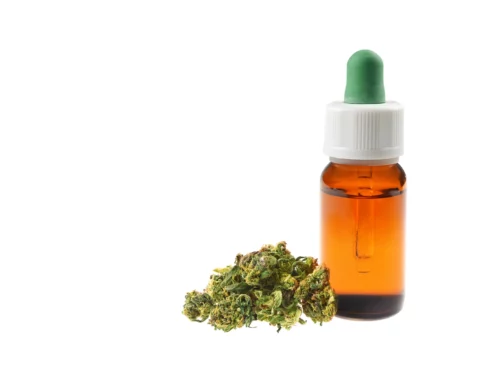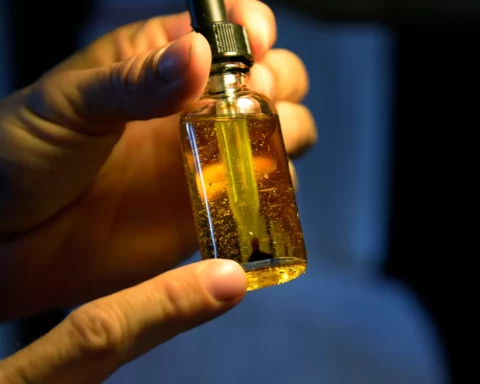Each individual consumes CBD oil differently from others because of the difference in metabolism, and body weight, among other aspects. The consumption programs determine CBD oil’s effectiveness. This article explains how one should consume CBD oil, how they can take it, and how much they should drink, among other aspects.
People may find CBD oil in various products, from dietary supplements to cosmetics. CBD oil and other CBD products are currently quite popular and widely purchased. After more people started saying it had health advantages, it gained popularity. Thus, how frequently CBD oil should be taken remains an important question. The healthcare provider may decide the amount of dosage of CBD medicine that one needs to consume. The doctor can determine the dose based on the diagnosis and response to existing therapy. The Food and Drug Administration does not regulate other CBD products. As a result, there is no accepted dosage. If one does not experience any adverse effects from CBD oil supplements, they may increase the dosage to twice daily. In other cases, including those involving persistent discomfort, it may be essential to take CBD capsules regularly. It’s possible to skip a day of CBD dosing if one wants. The CBD dosage that one chooses to utilize is entirely up to them.
HOW SHOULD I TAKE CBD OIL?
One may need to try different ways of consuming CBD oil to find the best results. Avoid unpleasant side effects by avoiding taking excessive amounts. Take a little part first, and increase the dosage if the body responds well. Every three days is a good window for adding. But there is no established dose. Apply to the skin for external use on burns, eczema, and other skin disorders when needed. CBD concentration matters, so it’s best to start with a small quantity and work the way up. Migraine and headache sufferers may also benefit from topical treatments of this kind. To avoid this, one can also put a few drops of oil beneath their tongue and wait for them to be absorbed. Take CBD oil before bed if one has never tried it before since it may help them fall asleep.
SHOULD I TAKE CBD OIL DAILY?
Best outcomes will be achieved by using CBD oil regularly. But don’t go crazy with the dosage, or an individual can have some unpleasant side effects. Aim for daily doses of 70mg or less. CBD oil does not follow the same liver route as other prescribed and over-the-counter drugs. According to Dussault (2017), full-spectrum CBD oil is recommended for first-timers because of the reduced dosage needed to get the desired effect as it lowers the potential for negative medication interactions. In addition, the liver will experience less stress at a lower dosage. CBD oil should be used with caution by those with liver disease. Keep an eye on liver enzymes and adjust the dose with the guidance every three months. Therefore, take a small amount of CBD oil daily for the best benefits.
HOW OFTEN SHOULD I TAKE CBD OIL?
Different people need to use CBD oil at different intervals. Observing a patient’s response to treatment will allow the medical team to determine the optimal dosage. First, take the CBD oil once daily, as there is no established or suggested dosage. A person can consume it twice daily if they don’t feel ill effects. The growth rate must be adjusted based on how the body responds to the product. Although the effects of CBD may not be felt for up to a week after discontinuing use, those effects will be felt for much longer if the oil is taken more often. Because CBD is lipophilic, it eventually dissolves in the fat molecules prevalent throughout the body. Because of its lipophilic properties, CBD is poorly eliminated from the body even after use has ceased.
HOW MUCH CBD OIL SHOULD I TAKE?
Because of these differences, the ideal CBD oil dosage differs from person to person. It matters what kind of CBD oil is utilized. When using full-spectrum products, for instance, the recommended dosage is less than when using isolate. According to Spindle et al. (2019), CBD oil ingestion varies with the route of administration (oral or topical). Start slowly and adjust the dose based on the body’s response. Stop if the increased dosage is not helpful or if the condition worsens. According to Brown (2020), certain prescription drugs also affect CBD oil dosage. Therefore, please consult a medical professional and adhere to their advice. However, the amount of CBD oil a person should take depends on their problem or medical condition. Some illnesses demand modest dosages, while greater doses are suitable for others; thus, it’s crucial to tailor treatment to each patient’s specific needs. For people suffering from epilepsy, a more significant dose may be recommended. However, a small amount may be used by someone who desires to lessen their anxiety.
IF I TAKE CBD OIL, HOW LONG DOES IT TAKE TO TAKE EFFECT?
According to van de Donk et al. (2019), the benefits of CBD oil may not be seen for many hours after use, making CBD vapes the fastest option to get the medication into the system. The formulation of CBD determines how long it takes to take action. When time is of less importance, the tincture is best. CBD oil benefits are felt within 20 minutes to an hour. If one puts the liquid beneath their tongue, it will swiftly enter the bloodstream. As a result, the effects of CBD oil are felt more quickly than those of capsules but later than those of vapors.
CONCLUSION
Oil extracted from cannabis, or CBD, can be ingested orally or used topically. People’s needs and responses to this product vary greatly. Everyone is different, so there’s no schedule for how often to take anything or how long it will take to see an effect. However, it’s best to ease into using CBD oil gradually. Depending on one’s health and the body’s reaction to the medication, the doctor’s advice and instructions can assist in determining when it is suitable to continue taking the drug. Furthermore, CBD oil daily is not terrible as long as the dosage is modest.
REFERENCES
Brown, J. D. (2020). Potential adverse drug events with tetrahydrocannabinol (THC) due to drug-drug interactions. Journal of clinical medicine, 9(4), 919.
Dussault, D. (2017). Ganja yoga: A practical guide to conscious relaxation, soothing pain relief, and enlightened self-discovery. Hay House, Inc.
Spindle, T. R., Bonn-Miller, M. O., & Vandrey, R. (2019). I am changing the landscape of cannabis: novel products, formulations, and administration methods. Current opinion in psychology, 30, 98-102.
van de Donk, T., Niesters, M., Kowal, M. A., Olofsen, E., Dahan, A., & van Velzen, M. (2019). A randomized experimental study on the analgesic effects of pharmaceutical-grade cannabis in chronic pain patients with fibromyalgia. Pain, 160(4), 860.
- Bell Peppers 101: Nutrition Facts and Health Benefits - April 19, 2024
- Products That Assist with Stress Relief - September 21, 2023
- TRÈFLE – THE ROAD TO THE 15TH - July 29, 2023









